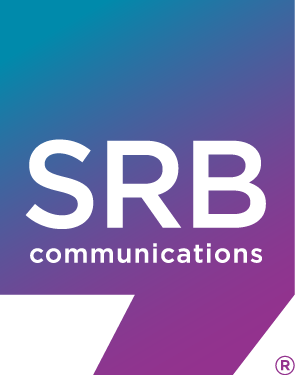News & Insights
Black Icons in Communications
We love Black History Month. Exploring the rich history created by the millions of African Americans is not only important, but so rewarding. With all that it has to offer, we want to highlight a few of the icons in our own industry. The Black trailblazers that broke down barriers in communications deserve the same recognition as the other big names in Black history. Let’s dive in and get to know these amazing pioneers.
Marvel Cooke 1903-2000
Marvel Cooke was an African-American journalist born in Mankato, Minnesota in 1903. She earned a degree in English from the University of Minnesota in 1925, and thereafter became a pioneer in journalism for Black people and women. During her career Cooke accomplished great feats, such as working at the NAACP publication, The Crisis, making history as the first woman reporter at the Amsterdam News, and serving as an English, History and Latin professor at North Carolina Agricultural and Technical College. For her love of New York, Cooke returned in 1935 to work for the Amsterdam News once again. While there, Cooke also became the assistant managing editor at the People’s Voice in Harlem before moving on to work at the Compass newspaper. During her time at Compass, Cooke continued to make history as the first Black woman reporter at a White-owned paper. Cooke had a love for the arts and engaged in political activism. For example, in 1953, she was New York director of the Council of Arts, Sciences and Professions. Furthermore, she also held the position of National Legal Defense Secretary of the Angela Davis Defense Committee in the late 1960s and ’70s. Prior to her passing in Harlem, N.Y. in December of 2000, Cooke also served as national vice chairman of the American-Soviet Friendship Committee.
Joseph Varney Baker 1908-1993
Joseph Varney Baker was born in 1908 in Abbeville, South Carolina. In pursuit of an education, Baker attended Temple University where he studied journalism. Shortly after attending Temple, Baker was hired by an African-American newspaper called the Philadelphia Tribune where he served as city editor. During his adult life, Baker wrote for myriad Black newspapers and made history as the first Black journalist to write for the Philadelphia Inquirer. Most of his writings focused on the Black community and the events of that time. Changing the course of his career, Baker went on to work in Pennsylvania as the director of the Division of Negro Research and Planning for the state’s Department of Labor and Industry. Not long after, he moved on to the Republican State Committee to work as the Director of Negro Work. In 1934, Baker created Joseph V. Baker Associates, the first Black-owned public relation firm in the United States. His firm continued to change the course of history by becoming the first Black public relations firm to acquire large accounts from various U.S. corporations. His clients included Pennsylvania Railroad, American Tobacco, Carrier, Hamilton Watch, Gillette, Scott Paper, RCA, Procter & Gamble, Chrysler, DuPont, U.S. Steel, Western Union, NBC, the Association of American Railroads and major black entertainers. In 1958, Baker was elected the first African-American president of the Philadelphia Public Relations Society of America, which led him to be the first African American to receive accreditation from PRSA.
Barbara Harris 1930-2020
Barbra Harris was born June 12, 1930, in Philadelphia. Harris began working for Joseph V. Baker Associates where she became the first Black woman to handle public relations accounts for large corporations. She also handled media relations for actor Roxie Roker of The Jeffersons, RCA, Harry Belafonte and Marian Anderson. While working at Joseph V. Baker Associates, Harris created a Division of Women’s Information and edited a publication for homemakers. In 1958, she became president of the firm, and in 1973, she was elected president of the Philadelphia chapter of the Public Relations Society of America. Harris was also involved in the Civil Rights Movement, some of her many contributions include registering Black voters in Mississippi and marching with Dr. Martin Luther King Jr. in Selma, Alabama. She supported women’s rights and campaigned for the involvement of women in the Anglican clergy. In 1977 she studied theology at the Metropolitan Collegiate Center at Villanova University and then continued her studies at the Urban Theology Unit in Sheffield, England. She graduated from the Pennsylvania Foundation for Pastoral Counseling and was ordained a deacon in 1979, and a priest in 1980. While in this new role, Harris used her public relations background to become executive director of the Episcopal Church Publishing Company. She was also editor, publisher and columnist for a socially progressive Episcopal journal, The Witness.



